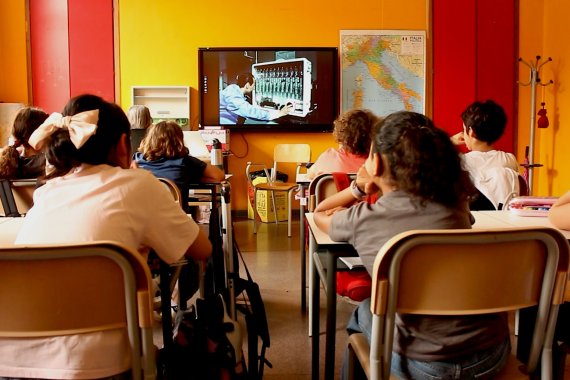Building back better through international labour standards and corporate social responsibility
Building back better through international labour standards and corporate social responsibility
Tripartite participants from around the globe have wrapped up a month-long exchange of experiences and best practices through an ILO e-learning course.
11 December 2020

Over 90 participants—from 40 countries—have been learning from ILO and other experts and exchanging ideas during a 4-week long online training course. The course, International Labour Standards and Corporate Social Responsibility: the labour dimension of human rights due diligence, saw participation with delegates from government, employer and workers organizations, international organizations, companies and NGOs. All share a strong interest in how businesses can maximize their positive impact on social and economic development, and in particular by respecting and promoting human rights in and through their operations
COVID-19 has exposed structural inequalities in the labour market and the inadequacy of social protection systems in many countries. The 17 Sustainable Development Goals of the 2030 Agenda are more relevant than ever, particularly those relating to inequality. It is urgent to build back better with equality and environmental sustainability. The poorest, already the most vulnerable, are now at even greater risk of exploitation and labour-related human rights violations, and the crisis has severely affected the livelihoods of millions of workers, especially those in supplier companies in Asia. Business’ respect and promotion of human rights, along with actions by governments to protect human rights, has become essential for workers—and companies—to survive and recover from the pandemic.
Building back better also in the world of business
In post COVID-19 recovery efforts, “building back better” has become a central theme when looking at sustainable enterprise and responsible business. Companies should balance economic objectives with the social aspirations of their workers, including the respect for human rights and protection of the environment.
“Every country needs a social compact between government, the private sector, the social partners and civil society to achieve inclusive and sustainable economic growth, decent work and more resilient societies. The call for adopting more sustainable business practices, including the emergence of national legal frameworks on human rights due diligence, has become more urgent in light of COVID-related disruptions of markets and supply chains,” explains Karl Pfeffer, course coordinator on Multinational Enterprises and Global Supply Chains at the ILO Training Centre in Turin.
The course builds upon ILO’s work over the years on “Business and Decent work”, which is based on the ILO MNE Declaration of Principles concerning Multinational Enterprises and Social Policy—ILO’s tripartite normative instrument, which provides guidance both to companies on responsible business practices and to governments on creating an enabling environment for responsible business.
What framework to choose?
One of the questions that the course answers is how the mandate of the ILO, and its standards, are reflected across different CSR frameworks such as the ILO MNE Declaration, the OECD guidelines, the United Nations Guiding principles on Business and Human Rights and the UN Global Compact, company policies and sectorial or regional compliance initiatives.
In this regard, Emily Sims, Coordinator of the ILO Helpdesk for Business, clarified that no matter which international instrument or major initiative a company is using, the underlying labour principles are very likely based on the principles contained in International Labour Standards.
ILO works extensively with various UN and other international inter-governmental organizations to promote policy coherence; and with multi-stakeholder and industry initiatives on business and human rights.
A shared understanding, common approach and more coordinated efforts to ensure respect for workers’ rights will help sustainable business practices to get to scale as quickly as possible.
Emily Sims
Coordinator of the ILO Helpdesk for Business
Focus sessions on International Labour standards and Business
Participants took part in focus sessions on International Labour Standards and Business, such as wages, benefits and working hours; occupational safety and health, forced labour and child labour; freedom of association and collective bargaining amongst others. These focus sessions, led by ILO experts on these topics, demystify them and related standards, and most importantly how these are being applied in a business and human rights due diligence context.
Good hints and materials were provided to help us to assess if the business strategies and policies are aligned with these standards, as well as possible ways to implement a comprehensive and structured approach to promote good practices, and avoid or mitigate potential risks.
Frederico Pinteus
Head of International Labor Relations, Continental AG
While ILO standards and approaches are central, the course also provides a forum for experts from other organisations to share their experiences and practices concerning labour rights related issues and highlighting complementarity between different frameworks, initiatives and International Labour Standards such as the Ethical Trading Initiative and OECD.
This course has given me all what I need to know about the fundaments of International labour standards. Now it is up to me to share this information and integrate it in our work.
Zwanny Naber
FNV Metaal

